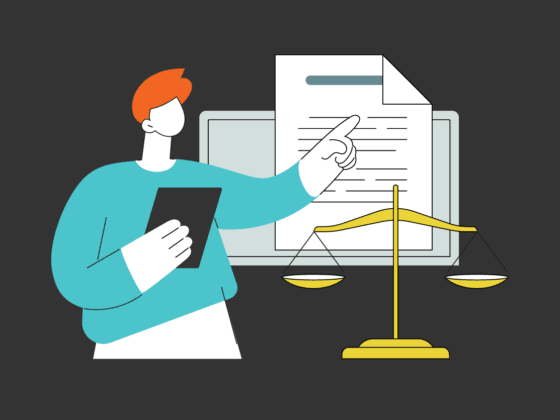This small firm was thrown into an expedited ediscovery process, so they sought help from Nextpoint to win their case.
After a food manufacturer fired their lawyer in a federal intellectual property case, Lauren Handel’s two-person firm was brought in as substitute counsel. Lauren was thrown into the case just before an expedited ediscovery request was due, which left her with less than a week to collect, review and produce the relevant documents. She knew she would need help with this monumental task, so she turned to the Nextpoint team.
The Challenge
Lauren needed to achieve three key goals with the help of Nextpoint’s expert support team and ediscovery software:
1. Collect and Produce Data on a Tight Deadline
When Lauren called Nextpoint, the team had only four days to collect data from three custodians in various formats, including cell phones and an email inbox file that had no web-based backup. The case had been filed with a motion for preliminary injunction and a temporary restraining order request, so Lauren had to quickly collect documents related to these issues before moving into broader discovery.
2. Weed Out Irrelevant Documents
Eliminating irrelevant data is a standard goal in ediscovery, but Lauren faced additional obstacles that complicated the process. After the initial expedited production, Lauren’s team moved into full discovery on all 15 claims in the case. She wanted to ensure they weren’t duplicating efforts from the first week.
The opposing counsel would also “data dump” huge sets of irrelevant documents while failing to comply with data requests. Lauren and the team had to cull through this data to determine what was relevant and what information was missing.
3. Easily Collaborate with Co-Counsel
Lauren needed one central, secure repository for the case that each firm could access anywhere. “The case was bigger than I could handle, so I had to have co-counsel,” she said. “We had three different firms working on this for our client. And so it was essential that we have one platform that everybody could access.”
The Solution
The most pressing task was to meet the expedited ediscovery deadline. Lauren enlisted the help of Nextpoint’s Data Strategy team – a group of data experts that specializes in working tactically with digital evidence.
“Nextpoint was able to jump on the collection immediately,” Lauren said. “It was a big task to be able to collect what we needed from three custodians, get it all loaded and processed, and to be able to run the searches and have it all available in a form that we could review within a few days.” As they processed the data, the Nextpoint team loaded documents into a database that was universally accessible for Lauren’s co-counsel.
After overcoming the initial hurdle of expedited ediscovery, Lauren’s team was well-prepared to move into the broader discovery process. “When we got to full discovery we already had most of the data collected,” Lauren said. “And we already had a platform to be looking at our own documents for our own investigation needs too.”
Tackling the full discovery process was complicated because some issues involved documents that had already been reviewed for the first production. With the help of Nextpoint, Lauren could quickly identify these documents and focus on new data.
The Nextpoint team also helped Lauren easily eliminate “false positive” results – for example, one of their key search terms was included in a custodian’s email signature, so his emails kept cropping up when they were irrelevant. “The way the [Nextpoint] review platform is structured made it really easy to identify documents we just didn’t need to waste time actually looking at, and that we could code Not Responsive,” Lauren said.
While Lauren took advantage of Nextpoint software, the opposing counsel handled discovery the old fashioned way – they printed documents to review on paper, redacted them by hand, and scanned hundreds of images to produce to Lauren’s team. Nextpoint’s Document Splitting feature helped Lauren break up the pages manually and digest the data despite the difficult format.
Nextpoint also helped Lauren determine when the opposing counsel had produced irrelevant data and failed to comply with requests. When she received new productions, she would ask the Nextpoint team to mine the metadata and make a quick report on the substance of the documents so she could spot potential issues.
At one point, she realized that none of the documents in a huge production were from the relevant time period. In another instance, she found that the principal of the company hadn’t produced any documents. Nextpoint’s assistance helped her stay on top of her requests and promptly send enforcement letters and file motions to compel when necessary.
The Outcome
Nextpoint collected, reviewed, and produced the first document set in fewer than seven days, reducing the number of documents to review by 88% (137,144 to 16,848).
The Nextpoint platform simplified document review, which also became an advantage in managing depositions. “Having everything on Nextpoint made it easier for me to get ready in a very short amount of time to take the depositions I had to take,” Lauren said. When they received supplemental document productions two days before a key deposition, they could quickly upload, review and code data and identify documents for exhibits.
Nextpoint also provided free access for co-counsel to all relevant data and documents. Lauren even found that her co-counsel preferred Nextpoint over their own software. “It was a very convenient way to get three different firms involved and all working together on discovery and trial prep, for everyone to have access at the same time,” Lauren said.
Ultimately, Lauren credits Nextpoint for the successful data management in this case. “Truly, it was the only way that I could deal with this case,” she said. “There’s no way that I could have managed the data otherwise.”
CLICK HERE TO DOWNLOAD THE FULL CASE STUDY ON WINNING EXPEDITED EDISCOVERY
Need Help With Your Case?
Reach out to our legal experts for assistance. They provide support through each stage of the litigation process, from discovery to trial prep to presentation.







